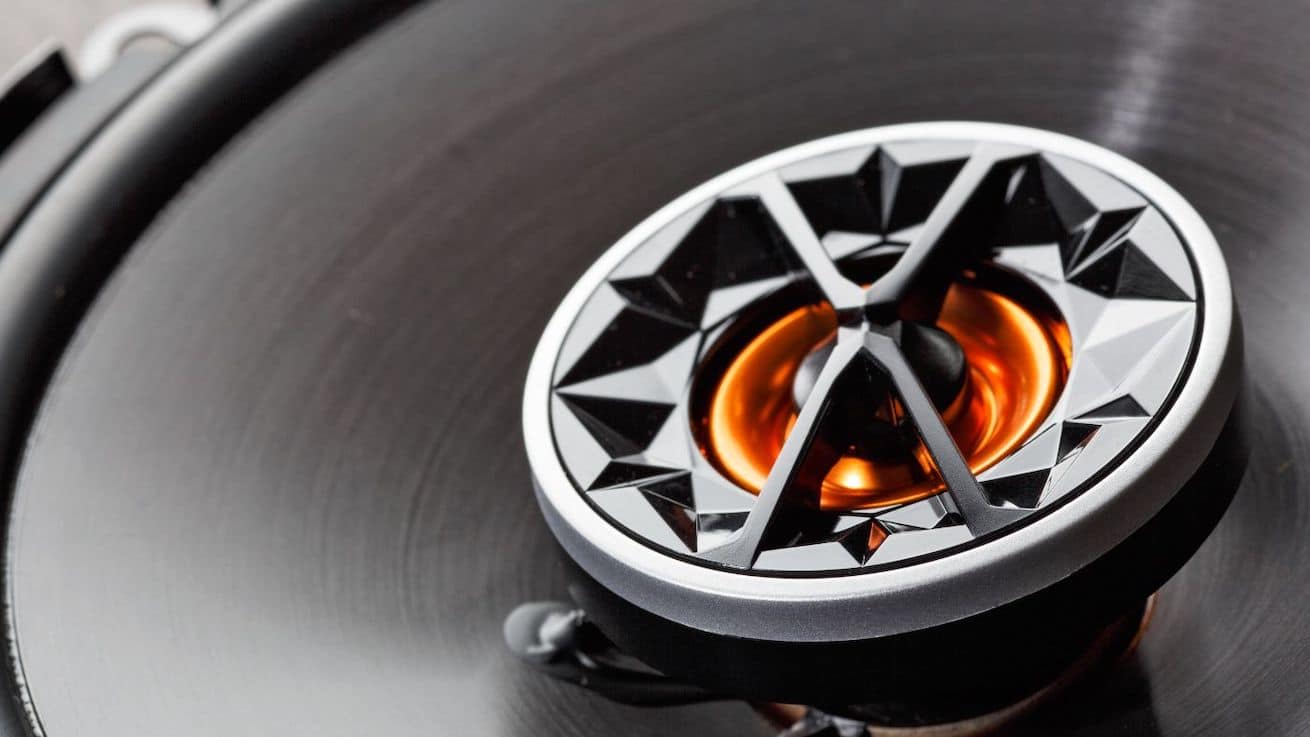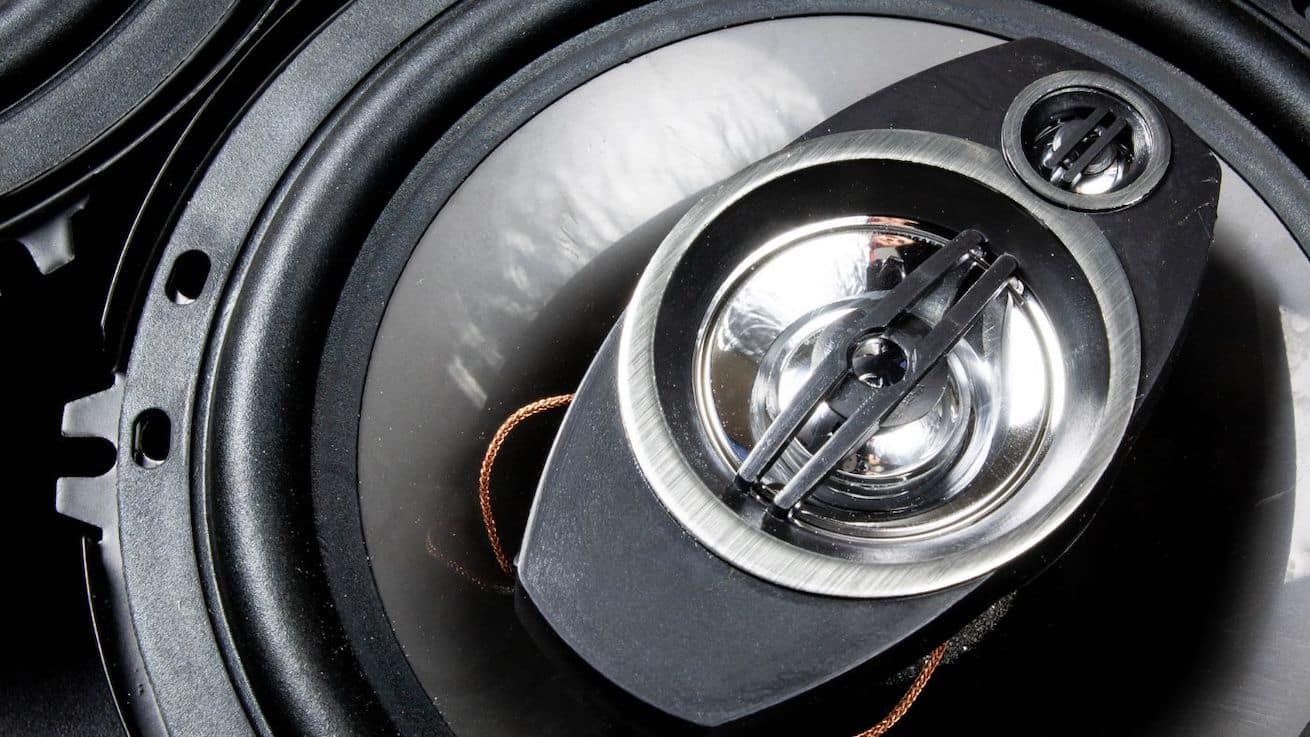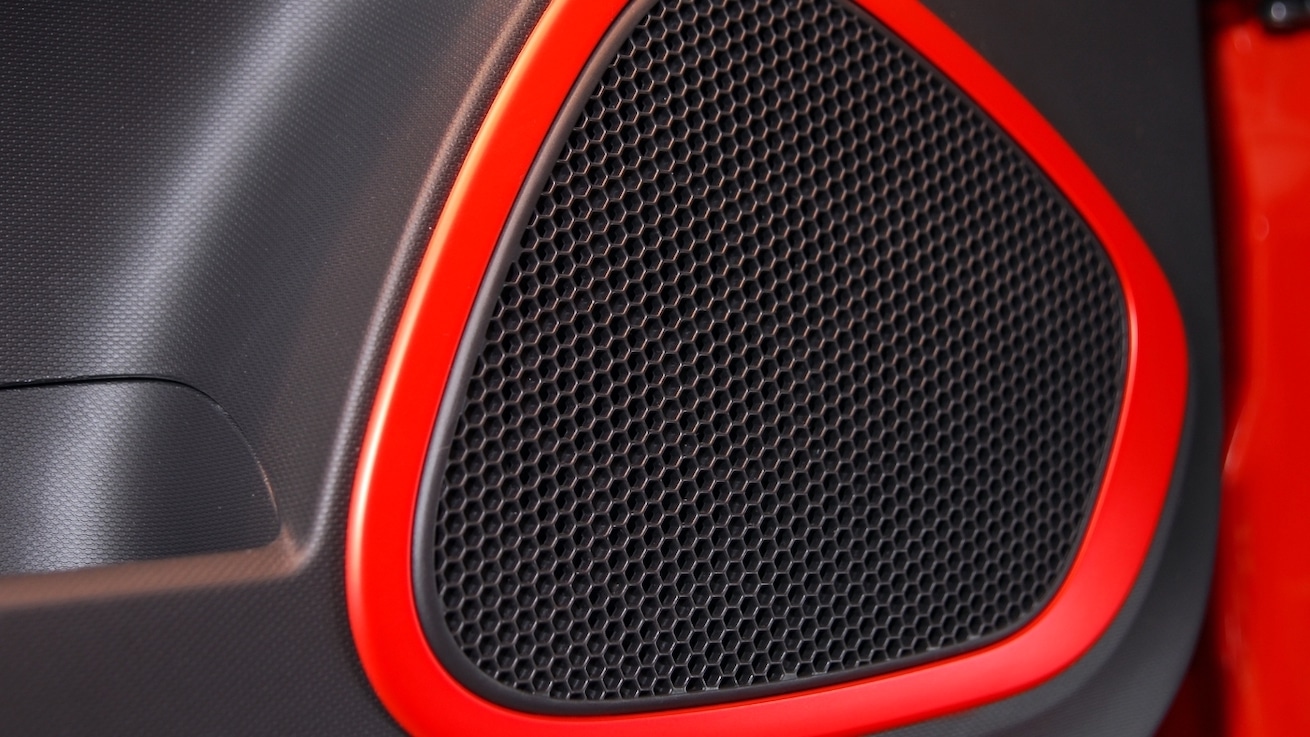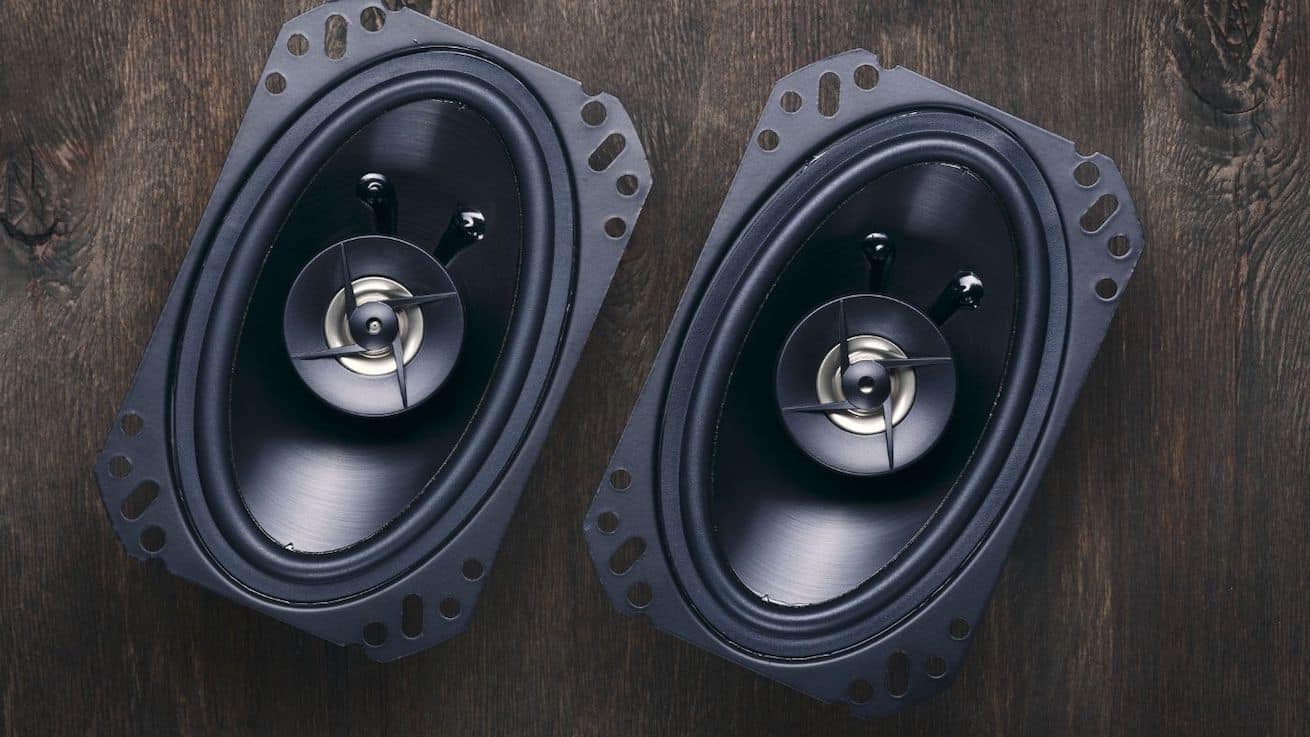Humming Sound From Speakers Solution – 5 Speaker Buzz Issues
Finding a humming sound from speakers solution can be quite challenging. Grasping the reasons behind issues and finding solutions is vital, be it your residential audio setup, potent sound projectors, or a basic sonic gadget.
Your auditory delight hinges heavily on the caliber of your speaker’s audio output. A persistent buzz you’re hearing might be the result of diverse causes like problematic wiring, electrical disruptions, or even complications from ground loop scenarios.
In order to reinstate top-notch audio performance, it’s crucial to diagnose and pinpoint the exact issue so that an efficient remedy can be deployed. Let’s look at the reasons why your speakers may generate a buzzing sound and how to rectify them.
Understanding the Buzzing Sound

There are multiple reasons why your speakers may generate a buzzing sound. One possible reason is electrical interference, which can be caused by nearby power sources. Another reason could be faulty cables or connectors, which can result in poor signal transmission and cause humming noises.
Ground loop issues can also lead to buzzing sounds in speakers. These occur when there are multiple grounding points in a sound system, creating a loop that picks up electrical noise and causes interference.
Distortion can also cause buzzing sounds in speakers. This can occur when the audio signal is too loud or when the speakers are pushed beyond their maximum capacity, resulting in a distorted audio output.
Why Are My Speakers Buzzing?
The humming noise or buzz emanating from speakers stems from electrical noise or interference. Sound card issues, ground loop problems, or a damaged audio cable are common causes. Even your amplifier could cause buzzing if it doesn’t correctly isolate the audio signal from the electrical ground.
Common Signs of Speaker Buzzing Sounds
One crucial sign of speaker buzzing is an annoying static sound at high volumes. The audio source may seem obscured, making loudspeakers produce irritating sounds. Your playback system may also demonstrate decreased clarity or sharpness, thus indicating a buzzing noise issue.
Poor sound quality is another common sign of speaker buzzing. If you notice distorted or muffled audio coming from your speakers, it could be a result of the buzz problem. Additionally, if you hear intermittent crackling noises during playback, it is likely that your speakers are experiencing distortions.
What Is the Best Humming Sound Solution?
The best humming sound solution to fix the buzzing is often the simplest. Utilizing a ground loop isolator can reduce electrical noise that causes the speaker to buzz. Moreover, using shielded cables and avoiding placing your audio device near objects that can cause interference is advisable.
Easy Ways to Fix Speaker Buzz From Scratch
 Look for any speaker damage, such as loose wires or torn speaker cones. If any damage is found, repairing or replacing the damaged components can help eliminate the buzzing sound.
Look for any speaker damage, such as loose wires or torn speaker cones. If any damage is found, repairing or replacing the damaged components can help eliminate the buzzing sound.
Checking and adjusting the volume levels on both the audio device and the speakers can also help reduce or eliminate the buzzing noise. Try the following solutions to fix buzzing sound from speakers:
Check for Ground Loops
Start by checking for ground loops in your audio system. The buzzing sound can often be a result of a ground loop. Use a ground loop isolator to break the loop and eliminate the hum.
Fix Buzzing Coming From Loose Connections
Another easy way to fix buzzing is by inspecting your audio cables. Damaged cables or loosely connected ones might cause the speaker to produce a buzzing sound. Ensure you replace or securely plug them in.
Your speakers may have thinner wires than what is required for optimal audio quality. Thicker wires can help reduce buzzing. Consider upgrading your speaker wires if necessary. Plus, it’s important to check the power source for your stereo. Insufficient or fluctuating power can also contribute to buzzing.
Ensure that the audio cables are properly plugged in and are not loose. Loose connections can cause hum sounds. If the issue persists, try using a different audio cable to rule out any potential cable defects.
Avoid Frequency Interference
Troubleshoot your stereo to identify if frequency interference is causing the speakers to buzz. Bluetooth devices, Wi-Fi routers, televisions, or even microwaves can cause interference.
Find Out If You Have A Damaged Audio Cable
Inspect every audio and signal cable connected to the speakers. Damaged cables can cause an annoying humming noise and need to be replaced promptly.
Verify that all the cables connecting to the audio system are not loose or improperly connected. Loose or faulty connections can also lead to static sounds. Furthermore, check for any visible physical damage on the cables, such as frayed wires or bent connectors, as these can also affect the audio quality.
Remove Any Electromagnetic Interference
Electromagnetic radiation can cause the hum noise in your sound system. To eliminate this interference, make sure that your audio cables are not running parallel to any power cables or other electronic devices.
Try moving any electronic devices or appliances away from your playback console to reduce the potential for electromagnetic interference.
Preventing Speaker Buzz In Audio Systems
 Utilizing a power strip that has integrated surge protection can help prevent speaker buzz in audio systems. Surge protection can help to regulate the electrical flow and prevent any sudden power surges that may cause interference.
Utilizing a power strip that has integrated surge protection can help prevent speaker buzz in audio systems. Surge protection can help to regulate the electrical flow and prevent any sudden power surges that may cause interference.
Properly Grounding Your Speakers or Amps
Ensure your speakers are adequately grounded to avert a potential ground loop. An isolator device might come in handy while grounding your equipment.
A power amplifier that is not properly grounded can also lead to unwanted noise and interference in the speakers. It is important to make sure that all components of your stereo, including the amplifier, are properly grounded to maintain a clean and clear output.
Minimizing Electrical Interference
Keep your audio device at a considerable distance from interference-causing electronics, thus enabling it to function without disturbances due to electrical noise. Other electronic devices that can cause interference include cell phones, Wi-Fi routers, and microwave ovens.
Stop the Speaker Buzzing Noise
Use shielded cables, maintain good wiring practices, and employ high-quality audio equipment to prevent speaker buzzing noise.
Ensure that the power wires are properly insulated and shielded to minimize electrical interference. Also, regularly check and tighten any loose connections to ensure a stable and uninterrupted audio signal.
Use a clean audio input signal
Sound effects of the audio signal might be the buzz coming out of your speakers and can be resolved by using a clean audio input signal. This can be achieved by using a high-quality audio source and avoiding any potential sources of interference, such as nearby electronic devices.
Additionally, ensuring that the audio signal is properly balanced and free from any distortion can help eliminate speaker buzzing noise. If the music playing from the audio device is an old analog recording, you could probably hear some background noise or hissing.
This is a common issue with older recordings due to limitations in the recording technology at the time. To minimize this noise, you can try using audio restoration software or filters to reduce the background noise without affecting the overall quality of the music.
An audio signal that is coming in from a computer is going to be a digital signal, which means it will be transmitted as a series of 0s and 1s.
To ensure the best quality, make sure your computer’s sound card is properly configured and updated with the latest drivers. Consider using a high-quality audio interface to convert the digital signal into analog for better audio reproduction.
How To Fix A Ground Loop Hum In Your Audio System

A ground loop occurs when there are multiple paths for electrical current to flow between components in a radio. This can result in a low-frequency hum noise.
To fix a ground loop hum, try using a ground loop isolator or a balanced audio connection. Make sure all audio cables are properly shielded and not running parallel to power cables, as this can also introduce unwanted noise into the head unit.
A ground loop can be fixed using a ground loop isolator. You may opt to use the HUM X ground isolator in your signal cable or radio to eliminate the electrical ground loop causing the buzzing noise.
Connect your amplifier to different AC outlets before determining if a ground loop isolator is necessary. This can help determine whether a ground loop is indeed the source of the buzzing noise or if other factors are at play.
Conclusion
Adjust the gain on the volume control up or down to see if it helps reduce the buzzing noise. If the buzzing noise persists, it may be necessary to consult a professional audio technician for further troubleshooting and potential repairs.
Applying these super easy tips to fix speaker buzz can improve your audio experience dramatically. Don’t forget quelling the triggers of subwoofer vibration is a continuous endeavor that calls for routine upkeep and vigilance.
Last Updated on: March 16, 2025

